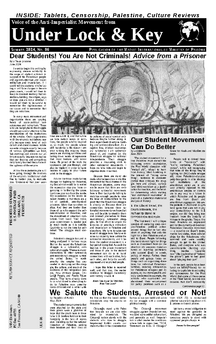
War for All of Apekind Trumps Revenge

War for the Planet of the ApesSpoilers
14 July 2017
PG-13
This is the third movie in a new trilogy based off the original 5-film series. Like Rise of the Planet of the Apes (2010), War for the Planet of the Apes (2017) makes many references to the original series. It does a lot to set up for the scenario in the original second film, Beneath the Planet of the Apes (1970). However, the ending seems to crush that possibility. There is a fourth film being planned for the new series, and it is not clear what the scenario will be.
This new series lacks some of the scifi complexities of the original that dealt with space and time travel and mutations and evolution. So far the new series has covered a modest 15 years, in one world, and is a pretty straight forward story of struggle and war between humyns and apes whose brains evolved due to a brain-enhancing virus developed to cure Alzheimer’s disease in humyns.
In Beneath (1970), the humyn civilization is built around a worship of nuclear weapons and the film is a righteous critique of nukes. In War (2017), the humyns are led by a messianic colonel who blames the man-made viruses for their plight. This leads to an anti-science position that puts these humyns at war with another faction who want to find a medical cure to the plague striking humyns. In the case of nuclear weapons we can say that humyns are taking technological advances into a dangerous direction that threatens all life on Earth. But this new Planet of the Apes series leaves us with the message that we should fear medical advancements. Under capitalism, such fear has a material basis because profits over people can lead to technological disasters in all fields. But in this post-apocalyptic world, there does not seem to be a functioning capitalist economy. So the message amounts to a religious movement calling for a cleansing, and opposing attempts at solutions in medical science. This feeds into the fear-mongering of fascist-leaning religious cults, unlike the original series that critiqued genocidal militarism.
In this movie, Koba haunts Caesar, both in dream-like visions and in the ongoing war that he started with the humyns. The mantra of “Ape shall not kill ape” is brought back by Koba in one vision, after Caesar kills a traitor who gave up Caesar’s location in an attempt to save himself, leading to the murder of Caesar’s wife and older son. Revenge for this event serves as Caesar’s motivation through most of this film. When they encounter the traitor at an enemy camp he attempts to notify the humyns of their presence, endangering Caesar’s life a second time. While Caesar is very merciful, he cannot abide to absolutes like “Ape shall not kill ape” and still serve the masses of apes at the same time. We later learn that the seemingly ruthless humyn Colonel has also made sacrifices for the greater good of humyns. The Colonel even offers Caesar lessons in not letting his emotions and drive for revenge guide him. This is one positive message of the film, which ends with Caesar returning to the struggle for all apes that he was so dedicated to in the last two films.
One of the new characters introduced in this third film is a goofy source of slap-stick humor. While this may be seen as a desperate attempt to liven up the series, perhaps it is a throwback to the third film in the original series, Escape from the Planet of the Apes (1971), which has a whimsical feel to it that is inconsistent with the two films before and after it. The comic relief character does play an important role in letting us know that more supersmart apes exist in the world. While he got audience laughs, the only funny part about this character in this reviewer’s opinion was how the producers introduced the name of the young humyn who joins the ape leadership on their revenge mission. This young humyn is an interesting look at what we could call national or species suicide. She gives the “Apes United Are Strong” salute before playing a crucial role in breaking them free. At one point she asks the orangutan Maurice, “Me? Ape?”. Maurice answers by saying her name. A sort of non-answer that seems to say no, but you are one of us. The examples of apes working for the humyns, and this humyn being part of the apes is a blow against identity politics. An individual’s politics and the role they play in the world is not defined by what group they were born into, even though we can analyze about groups and their roles and positions in society.
On the other side, there are many traitors working for the humyns who were called “donkeys” and treated as servants, while being forced to commit much of the brutality against captive apes to prove their loyalty. This type of mentality is so well-established today that no force is needed to get Black and Brown pigs to be more brutal than their white counterparts. One of the traitors who beats and abuses Caesar when he enters the work camp comes to his aid at the very end. This comes after we see Caesar act in a firm and principled way in front of the traitor throughout the film. This is not just a nice, fictional story. In his autobiography, set mostly in the first wave of the U.$. prison movement, Black Panther Eddie Conway demonstrates that being politically consistent and being a leader does impact people in ways you may not realize for some time. And that people will come through for the movement when you don’t expect it if you set a good example as a leader.
There is something unbelievable in the way the modern Planet of the Apes films combines the lumbering ape-suited actors, with the scenes of tracking humyns and searching in close combat situations. The idealized images of military and SWAT operations we’re so used to in movies today just don’t accommodate the clumsy movements of the apes. The more primitive scenes of war in the original series are actually more congruent and believable.
Overall, there was some good character development in War (2017) that demonstrated some useful lessons for political struggle. Like the other films in this new series there is more of a focus on fast-paced battle scenes than in the original series. And like the others in this new series, it loses some of the more radically progressive aspects of the earlier version. Despite that, the focus on prison struggles, like in Rise (2010), will probably preclude this movie from being screened in U.$. prisons. We are still holding out to see whether the makers of the new series will delve into the subject of the dictatorship of the proletariat, as did the last two films of the original series.








